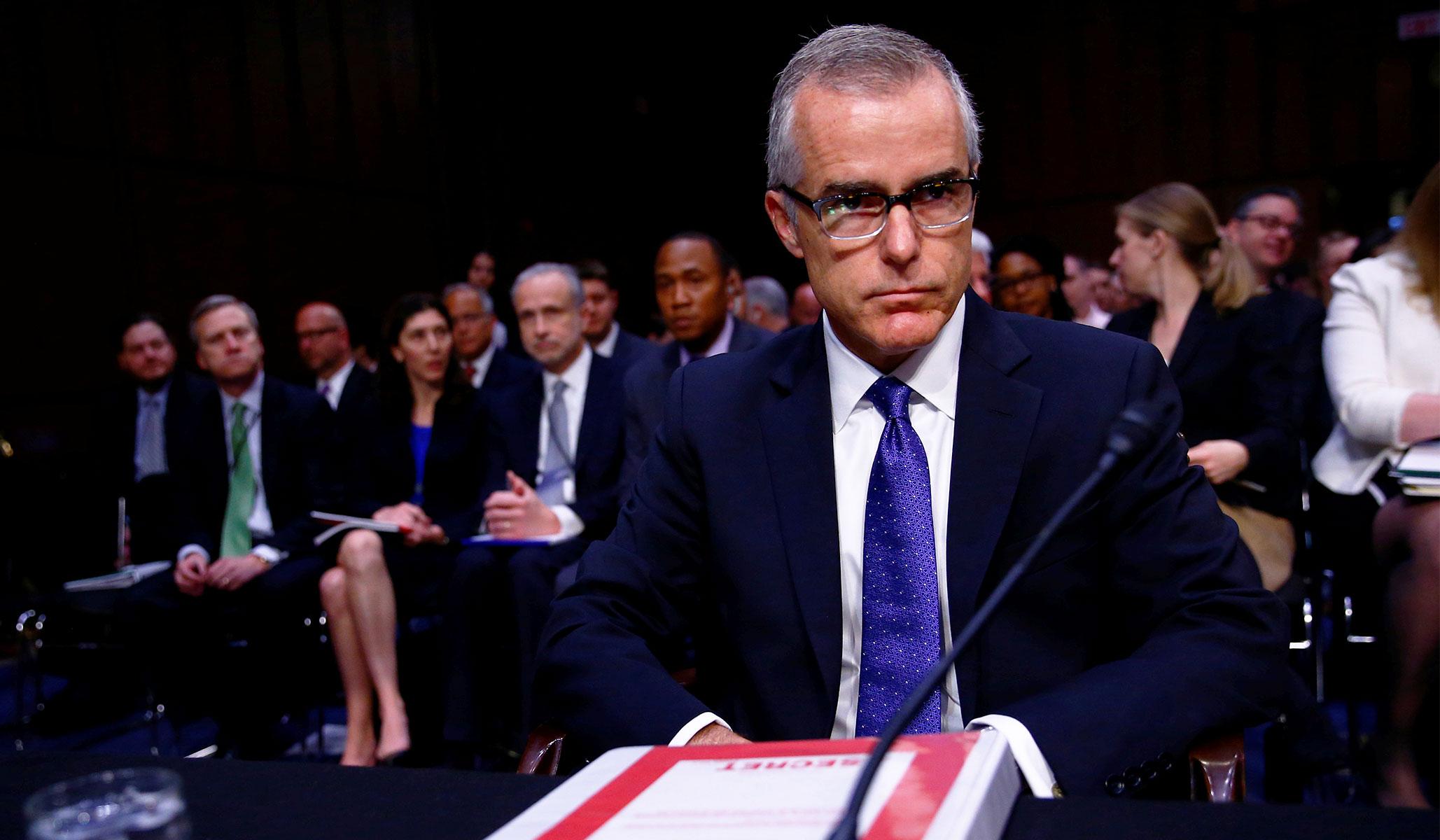The FBI’s deputy director Andrew McCabe testified Tuesday at a marathon seven-hour closed-door hearing of the House Intelligence Committee. According to the now-infamous text message sent by FBI agent Peter Strzok to his paramour, FBI lawyer Lisa Page, it was in McCabe’s office that top FBI counterintelligence officials discussed what they saw as the frightening possibility of a Trump presidency. That was during the stretch run of the 2016 campaign, no more than a couple of weeks after they started receiving the Steele dossier — the Clinton campaign’s opposition-research reports, written by former British spy Christopher Steele, about Trump’s purportedly conspiratorial relationship with Vladimir Putin’s regime in Russia. Was it the Steele dossier that so frightened the FBI? I think so. There is a great deal of information to follow. But let’s cut to the chase: The Obama-era FBI and Justice Department had great faith in Steele because he had previously collaborated with the bureau on a big case. Plus, Steele was working on the Trump-Russia project with the wife of a top Obama Justice Department official, who was personally briefed by Steele. The upper ranks of the FBI and DOJ strongly preferred Trump’s opponent, Hillary Clinton, to the point of overlooking significant evidence of her felony misconduct, even as they turned up the heat on Trump. In sum, the FBI and DOJ were predisposed to believe the allegations in Steele’s dossier. Because of their confidence in Steele, because they were predisposed to believe his scandalous claims about Donald Trump, they made grossly inadequate efforts to verify his claims. Contrary to what I hoped would be the case, I’ve come to believe Steele’s claims were used to obtain FISA surveillance authority for an investigation of Trump. There were layers of insulation between the Clinton campaign and Steele — the campaign and the Democratic party retained a law firm, which contracted with Fusion GPS, which in turn hired the former spy. At some point, though, perhaps early on, the FBI and DOJ learned that the dossier was actually a partisan opposition-research product. By then, they were dug in. No one, after all, would be any the wiser: Hillary would coast to victory, so Democrats would continue running the government; FISA materials are highly classified, so they’d be kept under wraps. Just as it had been with the Obama-era’s Fast and Furious and IRS scandals, any malfeasance would remain hidden. The best laid schemes . . . gang aft agley. Why It Matters Strzok’s text about the meeting in McCabe’s office is dated August 16, 2016. As we’ll see, the date is important. According to Agent Strzok, with Election Day less than three months away, Page, the bureau lawyer, weighed in on Trump’s bid: “There’s no way he gets elected.” Strzok, however, believed that even if a Trump victory was the longest of long shots, the FBI “can’t take that risk.” He insisted that the bureau had no choice but to proceed with a plan to undermine Trump’s candidacy: “It’s like an insurance policy in the unlikely event you die before you’re 40.” The Wall Street Journal reported Monday that, “according to people familiar with his account,” Strzok meant that it was imperative that the FBI “aggressively investigate allegations of collusion between Donald Trump’s campaign and Russia.” In laughable strawman fashion, the “people familiar with his account” assure the Journal that Strzok “didn’t intend to suggest a secret plan to harm the candidate.” Of course, no sensible person suspects that the FBI was plotting Trump’s assassination; the suspicion is that, motivated by partisanship and spurred by shoddy information that it failed to verify, the FBI exploited its counterintelligence powers in hopes of derailing Trump’s presidential run. But what were these “allegations of collusion between Donald Trump’s campaign and Russia” that the FBI decided to “aggressively investigate”? The Journal doesn’t say. Were they the allegations in the Steele dossier? That is a question I asked in last weekend’s column. It is a question that was pressed by Chairman Devin Nunes (R., Calif.) and Republican members of the House Intelligence Committee at Tuesday’s sealed hearing. As I explained in the column, the question is critical for three reasons: (1) The Steele dossier was a Clinton campaign product. If it was used by the FBI and the Obama Justice Department to obtain a FISA warrant, that would mean law-enforcement agencies controlled by a Democratic president fed the FISA court political campaign material produced by the Democratic candidate whom the president had endorsed to succeed him. Partisan claims of egregious scheming with an adversarial foreign power would have been presented to the court with the FBI’s imprimatur, as if they were drawn from refined U.S. intelligence reporting. The objective would have been to spy on the opposition Republican campaign. (2) In June of this year, former FBI director James Comey testifie
Source: Trump-Russia Steele Dossier: FBI’s ‘Insurance Policy’ for Clinton Campaign? | National Review
 Listen Online
Listen Online Watch Online
Watch Online Find a Station in Your Area
Find a Station in Your Area









 Listen Now
Listen Now Watch Online
Watch Online
